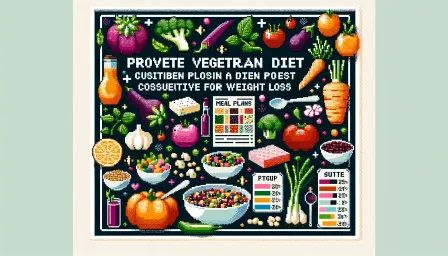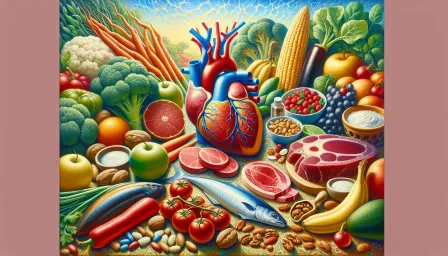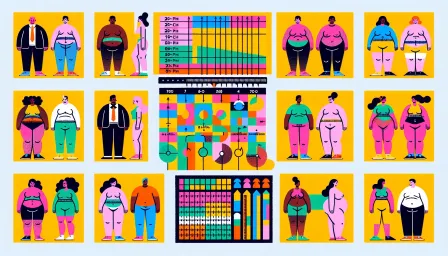The Ultimate Guide to a Vegetarian Diet and Heart Health

Discover how a vegetarian diet can improve heart health. Learn the benefits, nutritional guidelines, and practical tips for a heart-healthy vegetarian lifestyle.
In recent years, the popularity of vegetarian diets has surged, bringing significant attention to the impact of such diets on overall health, particularly heart health. This comprehensive guide will delve into the correlation between a vegetarian diet and heart health, presenting evidence-based insights, practical tips, and nutritional guidelines to help you make informed dietary choices that benefit your heart.
Understanding the Vegetarian Diet
A vegetarian diet primarily focuses on plant-based foods, eliminating meat while often incorporating dairy products and eggs. There are different variations of vegetarianism, each with its unique dietary inclusions:
- Lacto-vegetarian: Includes dairy products but excludes meat and eggs.
- Ovo-vegetarian: Includes eggs but excludes meat and dairy products.
- Lacto-ovo vegetarian: Includes both dairy products and eggs but excludes meat.
- Vegans: Exclude all animal products, including dairy and eggs.
How a Vegetarian Diet Benefits Heart Health
A vegetarian diet can contribute to heart health in numerous ways:
1. Lower Cholesterol Levels
Plant-based foods tend to be lower in saturated fats and free from dietary cholesterol. This can help reduce low-density lipoprotein (LDL) cholesterol levels, often referred to as "bad" cholesterol, which is a significant risk factor for heart disease.
2. Reduced Blood Pressure
Vegetarians often have lower blood pressure compared to meat-eaters. High potassium intake from fruits and vegetables helps manage blood pressure levels, reducing the strain on the cardiovascular system.
3. Enhanced Weight Management
Adopting a vegetarian diet can aid in weight management due to the high fiber content and lower calorie density of plant-based foods. Maintaining a healthy weight is crucial in reducing the risk of heart disease.
4. Antioxidant Rich
Vegetarian diets are abundant in antioxidants derived from fruits, vegetables, nuts, and whole grains. Antioxidants combat oxidative stress and inflammation, both of which can damage blood vessels and lead to heart disease.
Nutritional Considerations for a Heart-Healthy Vegetarian Diet
Ensuring a balanced intake of essential nutrients is critical for maintaining heart health. Here are some key nutrients to focus on:
1. Protein
Vegetarian sources of protein include legumes, tofu, tempeh, quinoa, and nuts. It's important to consume a variety of these foods to meet your protein needs.
2. Omega-3 Fatty Acids
Omega-3 fatty acids are crucial for heart health. Plant-based sources include flaxseeds, chia seeds, walnuts, and hemp seeds. Consider supplements if necessary.
3. Fiber
High-fiber foods such as whole grains, fruits, vegetables, and legumes help reduce cholesterol levels and support heart health.
4. Vitamins and Minerals
Ensure adequate intake of vitamins B12 and D, iron, calcium, and zinc through a well-planned diet or supplements if required. Leafy greens, fortified foods, and nuts are excellent sources.
Practical Tips for a Heart-Healthy Vegetarian Diet
Transitioning to a vegetarian diet for heart health is a rewarding journey. Here are some practical tips to help you along the way:
1. Plan Your Meals
Meal planning ensures you incorporate a variety of nutrient-dense foods into your diet, preventing nutrient deficiencies.
2. Read Food Labels
Be vigilant about reading food labels to avoid processed foods high in sodium, unhealthy fats, and added sugars.
3. Cook at Home
Cooking at home gives you control over ingredients and cooking methods, helping you create heart-healthy meals.
4. Stay Hydrated
Proper hydration supports overall health. Aim for at least 8 glasses of water a day and include water-rich fruits and vegetables in your diet.
Addressing Common Concerns
Adopting a vegetarian diet brings about certain concerns. Here, we address some of the most common ones:
1. Protein Deficiency
By consuming a variety of plant-based proteins, you can easily meet your protein needs without relying on meat.
2. Nutrient Deficiencies
A well-planned vegetarian diet can provide all essential nutrients. Consider fortified foods and supplements if necessary.
3. Social Challenges
Navigating social settings can be challenging but sharing your dietary goals with friends and family can foster support and understanding.
Conclusion
In conclusion, adopting a vegetarian diet can significantly enhance heart health by lowering cholesterol levels, reducing blood pressure, managing weight, and providing beneficial antioxidants. By focusing on a well-balanced intake of essential nutrients and following practical dietary tips, you can enjoy a heart-healthy vegetarian lifestyle. Understanding and addressing common concerns ensures a smooth transition and long-term adherence to this beneficial dietary pattern.
Embrace a vegetarian diet with confidence, knowing that you are making a profound impact on your heart health and overall well-being.



























